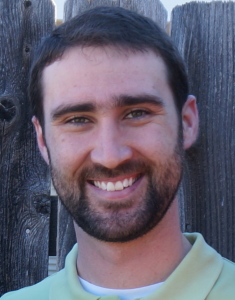
“We can explain factors that influence drug abuse, abusing others….even murder. But if there is a God that offers peace, joy and love, immoral acts never make sense. There is a mysterious problem within all of us that steers us toward sin. That problem needs addressed with love. It must be a passionate Christ-like love that forgives, nurtures, and raises up. It is not always a feel good or warm fuzzy love. It’s usually self-sacrificing, but sometimes it can be wonderful and rewarding. Any lesser solution than love is just a patch or gimmick.”
I read that quote this morning in a letter from Clark Massey on behalf of A Simple House. It immediately made me think about the role of psychology in addressing that “mysterious problem” and the painful effects it has in our lives.
I believe in the power of self-sacrificial, Christ-like love to change the world. I was raised believing in a God who offers peace, joy and love. I witnessed others who gave their best to meet pain with love. Their example showed me there is nothing better or more healing.
But I have also found that, flawed human that I am, the intention to be loving is not enough.
A bit of background. After undergrad, I spent several years as youth minister. I thoroughly enjoyed it, building relationships and doing my best to witness to love. But I also became aware of the things I did not know. Why could I really connect with some kids and not others? Why was a particular message touching and healing to one, but nearly offensive to another? And what could I do for the teens I knew where my usual mode of quality time, conversation and encouragement did not help? I felt well equipped to love in some situations, but in others I felt clueless. I had an idea how to help a team of volunteers feel appreciated and empowered, but I was in over my head when I faced issues like cutting and mental illness.
Even love needs tools. We show love through our actions, and we are always choosing between potential actions. As humans our love is also impacted by our understanding. We are able to love better when we understand more clearly. Psychology empowered me to make loving choices by increasing my awareness of different facets of human experience.
A crude breakdown of the human person might include biological, psychological, relational and spiritual aspects. These are not entirely distinct, indeed they overlap heavily and influence each other. I think of how my level of physical fatigue, or even what I ate for dinner, affects my ability to be present in prayer. Or how my spiritual state influences my interactions with friends and my view of myself. Psychology training has increased my understanding of the biological, psychological and relational aspects of the person, as well as how they interact with the spiritual and transcendent aspects.
Professional and scientific psychology has some very useful tools, and a valuable perspective on many human experiences. I do not think that psychological tools and insights are an ultimate solution for humanity’s suffering and pain, but in my eyes that does not reduce their usefulness. Understanding the factors that influence human action can be immensely helpful, and offering support that is psychologically informed does not replace love, but rather helps enable me to love. I am better prepared today to help others walk through their own pain and distress, particularly when those experiences have complicated biological and psychological components. In that sense, I am more capable of love.
My intention in contributing to this site is to bring whatever psychological tools are useful to bear in the service of love, healing and understanding. I want to empower Catholic love by adding psychological insight to the trove of knowledge found in the Church. I hope you find something here that aids your own growth or helps you to love others more fully. In turn, I am sure that I will learn much from you (especially if you share your experiences through comments and feedback!)